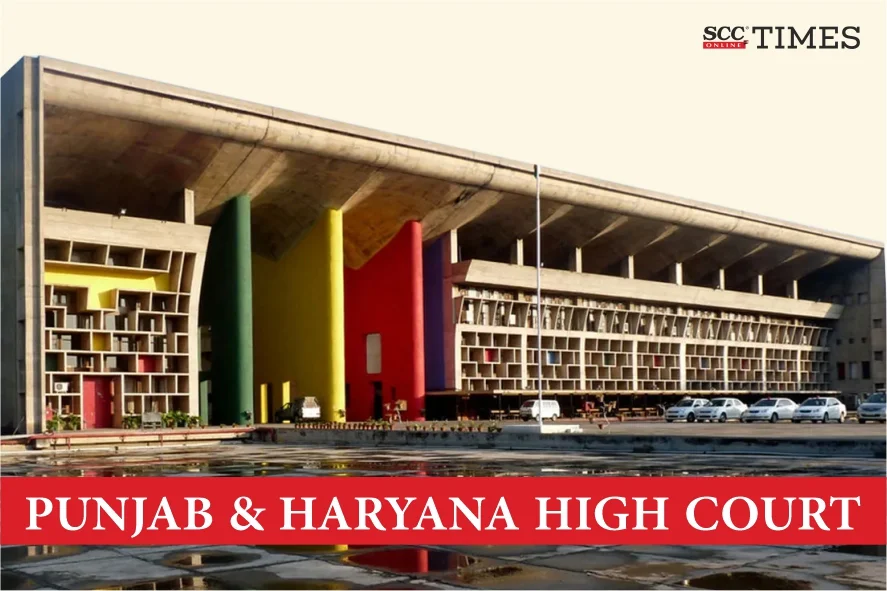Punjab and Haryana High Court: In a writ petition filed by presidents of Manimajra Vyapar Mandal and Manimajra Residential Welfare Association (‘the Associations’) against the street vendors and hawkers who were vending at the Manimajra local markets, the Division Bench of Sanjeev Prakash Sharma* and Meenakshi I. Mehta, JJ., dismissed the petition holding that the present petition, prima facie, appeared to be motivated to use the legal forum for evicting and destabilising the local business of the street vendors. The Court also imposed a cost of Rs. 50,000 each on the associations to be deposited with the Municipal Corporation for the welfare of street vendors and their families.
Background
The petitioners, presidents of Manimajra Vyapar Mandal and Manimajra Residential Welfare Association, and their members were owners of residential houses and shops/booths in the Markets located in the area of Manimajra. They were aggrieved by the inaction of the State in not removing the encroachments on public paths, roads, and public property made by fruit vendors, rehri vendors, hawkers, squatters, and other vendors. They alleged that these street vendors were creating nuisance, traffic hazards, hindrances in the free use of paths, roads, and public land by the public and negatively impacting the business of the petitioners as well as members of their Associations. It was also alleged that the vendors, hawkers, and squatters were members of the mafia.
Analysis
At the outset, the Court stated that India continues to remain an agrarian society despite essentially being a country of people coming from villages and forming cities in hopes of greener pastures. The development of any city is due to the movement of the people from the villages to the towns and from towns to cities. Since everyone cannot get employment, they search for one or another source of earning. These opportunities to earn are formed by doing small businesses selling eatables or small items for day-to-day use.
The Court remarked that it could not close its eyes to the fact that there was an elite class following the Britishers, who looked down upon their countrymen doing small business and treated them as if they were mafias, as stated in the present writ petition, or encroachers who caused chaos in commercial hubs. The Court further stated that the judiciary had to rise above the impressions that such an elite class carries.
The Court added, “Gone are the days when we had British Judges sitting in Courts, looking at justice to be delivered for people who rule. We are a country that now has a homogenous class of Indians. A Tribal lady of a remote village can now be the President of India, and a worker from the grassroots level may reach up to the highest echelons of the administration. Even in the Judiciary, we have had examples of persons who worked as Munshis/ Clerks with lawyers and rose to the level of Chief Justices.”
In this background, the Court placed reliance on Gainda Ramv. MCD (2010) 10 SCC 715, wherein it was held that streets in India are vested in the Municipality, and they have to be used by the Municipalities as trustees.
The Court noted that per the observations of the Supreme Court in Gainda Ram (supra), the Street Vendors (Protection of Livelihood and Regulation of Street Vending) Act, 2014 (‘the Act’) was enacted, which defines street vendor and lays down regulations for street vending. Thus, the Court noted that the Supreme Court and the Act allowed street vendors to be protected, and no writ would lie in seeking their eviction.
The Court commented that even after 12 years of Gainda Ram (supra), there was an attempt through this writ petition to evict the vendors who were admittedly carrying out vending for a long time in Manimajra. The Court added that the street vendors and their families, who were depositing fees with the Municipal Corporation for the street vending certificate, had to be provided some social protection. The amount so recovered by the Municipal Corporation should, therefore, be used for their benefits alone and kept in a separate budget head. Further, they should be provided with suitable insurance, including medical facilities, and rules in this regard should be framed.
On the other hand, the Court noted that the Act and the benefits thereunder were being misused by a certain set of persons, and even the shopkeepers themselves set up hawkers’ stalls in front of their shops selling their own items. People were also using wrongful means to get their names entered in the street vendor survey registers and illegally get sites registered for hawkers purposely. Noting this, the Court stated that such misuse of the law deserved to be dealt with by an iron hand as well as a will to execute the provisions of the law with integrity and duty.
Accordingly, the Court suggested that the Municipal Corporation of Chandigarh should accordingly set up a particular cell of Inspectors/Officers to regulate the misuse of the Act so that genuine people were not harmed.
Consequently, the Court held that the present petition, prima facie, appeared to be a motivated petition to use the legal forum for evicting and destabilising the local business of the street vendors. The Court also held that it could not allow such abuse of process of law.
Thus, the writ petition was dismissed with the imposition of a cost of Rs. 50,000 each on both Associations to be deposited with the Municipal Corporation for the welfare of the street vendors and their families.
[Malkit Singh v. State of U. T. Chandigarh, 2025 SCC OnLine P&H 2577, decided on 23-05-2025]
*Judgment authored by: Justice Sanjeev Prakash Sharma
Advocates who appeared in this case :
For the petitioner: Hardip Singh, Advocate
For the respondent: Sanjiv Ghai,Advocate


